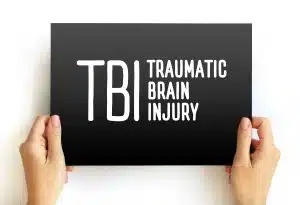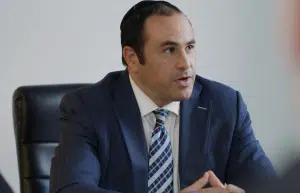
Can a car accident cause a brain injury? Yes. The forces involved in even a seemingly minor collision can cause the brain to strike the inside of the skull, leading to bruising, bleeding, and damage to delicate neural tissues. Brain injuries resulting from car accidents can have far-reaching consequences, affecting your ability to work, enjoy life, and even perform basic daily tasks.
If you’re reading this, you may be dealing with the aftermath of a brain injury from a car crash. You’re likely struggling with symptoms, mounting medical bills, and an uncertain prognosis. You shouldn’t have to pay for your injuries and losses if someone else caused the car accident. An experienced car accident attorney can review your case at no cost and advise you of your rights and options to pursue compensation.
If you have a brain injury claim, you can rely on your attorney to handle all the legal complexities and fight for the fair compensation you deserve. Contact a Lakewood car accident lawyer near you today for a free consultation.
Lakewood Car Accident Guide
- Types of Brain Injuries from Car Accidents
- Recognizing Signs of Brain Injury After a Car Accident
- Importance of Medical Evaluation
- Legal Considerations for Brain Injury Cases
- Compensation for Brain Injury Victims
- Legal Remedies and Courses of Action
- Potential Challenges in Brain Injury Cases
- Get Help from an Experienced Car Accident Lawyer Now
Types of Brain Injuries from Car Accidents
Car accidents can result in various types of injuries, with brain injuries being among the most common, such as:
Concussions
Concussions are the most common type of traumatic brain injury (TBI) resulting from car accidents. They occur when the brain is jolted inside the skull, causing temporary disruption to normal brain function. No matter their severity, concussions can have serious and lasting effects, especially if not properly diagnosed and treated.
Symptoms of a concussion may include:
- Headache
- Dizziness
- Confusion
- Memory problems
- Nausea
- Sensitivity to light or noise
Keep in mind that concussions don’t always result in a loss of consciousness. Even if you feel fine after an accident, you must get a thorough medical examination as soon as possible.
Traumatic Brain Injury (TBI)
TBIs encompass a range of more severe brain injuries, from contusions (bruising of the brain) to penetrating injuries. These can result from direct impact to the head during a collision or from the violent shaking of the brain inside the skull.
Moderate to severe TBIs can have profound and long-lasting effects, including:
- Cognitive impairments
- Physical disabilities
- Personality changes
- Sensory processing issues
- Speech and language problems
Recovery from a TBI often requires extensive rehabilitation and ongoing medical care. This treatment can be expensive, which is why you need an attorney to help you get compensation to cover these costs.
Whiplash-Associated Disorders
While not strictly a brain injury, whiplash can sometimes lead to brain-related symptoms. Whiplash occurs when the head is rapidly jerked back and forth, as often happens in rear-end collisions. This sudden movement can cause stretching and tearing of the neck muscles and ligaments, and in some cases, can affect the brain.
Some people with whiplash-associated disorders experience cognitive symptoms such as:
- Memory problems
- Difficulty concentrating
- Sleep disturbances
- Mood changes
These symptoms can persist for months or even years after the initial injury.
Recognizing Signs of Brain Injury After a Car Accident
Following a car accident, you need to watch for symptoms of a brain injury, which can manifest immediately or over time:
Immediate Brain Injury Symptoms
Some signs of brain injury may be apparent immediately after an accident. These can include:
- Loss of consciousness
- Confusion or disorientation
- Severe headache
- Nausea or vomiting
- Seizures
- Slurred speech
- Weakness on one side of the body
If you or someone you’re with experiences any of these symptoms following a car accident, seek emergency medical attention right away.
Delayed Brain Injury Symptoms
Not all brain injury symptoms appear immediately. Some may develop hours or even days after the accident. These include:
- Persistent or worsening headache
- Difficulty concentrating
- Memory problems
- Changes in sleep patterns
- Mood swings or personality changes
- Sensitivity to light or noise
- Balance problems or dizziness
If you notice any of these symptoms in the days following an accident, don’t dismiss them. See a doctor as soon as possible.
Importance of Medical Evaluation
As mentioned, you must get a thorough medical evaluation even if you feel fine after a crash. Some brain injuries, particularly in the case of closed head injuries, may not be immediately apparent. A healthcare professional can perform the necessary tests and examinations to detect any hidden injuries.
Prompt medical attention serves two crucial purposes:
- It ensures you receive proper treatment, potentially preventing more serious complications.
- It creates a medical record linking your injuries to the accident, which can be vital for any future legal claims.
Legal Considerations for Brain Injury Cases
To have a valid brain injury claim and hold the responsible parties accountable, you must understand certain aspects of personal injury claims and how they can affect your ability to recover damages.
Statute of Limitations
Every state has a statute of limitations – a deadline for filing a lawsuit. For personal injury cases, including those involving brain injuries from car accidents, this deadline typically ranges from one to six years, depending on the state. For instance, New York has a three-year statute of limitations, whereas New Jersey and Pennsylvania both have two-year deadlines.
If you miss any critical legal deadlines by not having an attorney file suit for you within your state’s statute of limitations, you risk losing your right to obtain compensation altogether.
Proving Negligence
To succeed in a personal injury claim, you’ll need an attorney to prove that another party’s negligence caused your injuries. This typically involves demonstrating four key elements:
- The other party had a duty of care (e.g., to drive safely)
- They breached that duty (e.g., by speeding or driving recklessly)
- This breach caused the accident
- You suffered injuries as a result
Documenting the Injury and Its Effects
You and your attorney must thoroughly document your brain injury and the adverse effect it’s had on your life. This includes:
- Medical records detailing your diagnosis, treatment, and prognosis
- Documentation of all medical expenses
- Records of missed work and lost wages
- A journal detailing your symptoms and how the injury affects your daily life
The more comprehensive your documentation, the stronger your case will be.
Compensation for Brain Injury Victims
After your lawyer helps you successfully navigate a brain injury claim, you could receive compensation for:
Medical Expenses
Brain injuries often require extensive medical treatment, which can include:
- Emergency care
- Hospitalization
- Surgery
- Medication
- Rehabilitation services (physical therapy, occupational therapy, speech therapy)
- Psychological counseling
Your claim should account for both current medical expenses and anticipated future medical needs related to your injury.
Lost Wages and Diminished Earning Capacity
If your brain injury significantly affects your ability to work, you may obtain compensation for:
- Wages lost during your recovery
- Reduced earning capacity if you’re unable to return to your previous job
- Costs of vocational rehabilitation if you need to train for a new career
Pain and Suffering
This category of damages compensates you for the physical pain and emotional distress resulting from your injuries. While it’s harder to quantify than medical bills or lost wages, pain and suffering can form a significant part of your claim.
Loss of Enjoyment of Life
Brain injuries can profoundly affect your ability to engage in activities you once enjoyed. Your lawyer can pursue compensation that acknowledges the impact of your injuries on your overall quality of life.
Legal Remedies and Courses of Action
Depending on your state’s laws and your insurance coverage, you may need to start by filing a claim with your own insurance company for your initial medical treatment. This is particularly true in “no-fault” states. In most cases, though, compensation will come from the at-fault driver’s insurance company for your pain and suffering damages.
When dealing with your own insurance company for your “no-fault” benefits and especially when dealing with the other driver’s insurance company, you need an experienced attorney to assist you with the claims process. Insurance companies typically try every tactic to reduce what they have to pay or deny claims altogether. Your lawyer can negotiate for a fair settlement and pursue legal action if the insurance company won’t negotiate a favorable settlement or acts in bad faith regarding your claim.
Personal Injury Lawsuits
If insurance negotiations don’t result in a fair settlement, your attorney may need to file a lawsuit on your behalf. This might also be necessary if the at-fault party is uninsured or if your damages exceed insurance policy limits.
Filing a lawsuit involves several steps:
- Filing a complaint with the court
- Serving the defendant with the lawsuit
- Going through the discovery process
- Potentially participating in mediation or settlement negotiations
- Going to trial if a settlement isn’t reached
Importance of Legal Representation
Navigating a brain injury claim requires the skills and resources of an experienced personal injury attorney. They can:
- Evaluate the strength of your case
- Handle all communication with insurance companies
- Gather and preserve crucial evidence
- Consult with medical experts to understand the full extent of your injuries
- Negotiate on your behalf to secure a fair settlement
- Represent you in court if necessary
A skilled attorney brings invaluable knowledge and resources to your case. They can:
- Accurately value your claim, ensuring you don’t settle for less than you deserve
- Anticipate and counter tactics the insurance companies use to minimize your claim
- Build a compelling case by properly presenting evidence and expert testimony
- Navigate complex legal procedures and deadlines
Gathering Evidence to Support Your Claim
Your attorney will work to compile comprehensive medical documentation of your injuries. This may include:
- Emergency room records
- Diagnostic test results (CT scans, MRIs, etc.)
- Treatment plans and progress notes
- Statements from your treating physicians
In many brain injury cases, expert witnesses play a crucial role. These may include:
- Neurologists or neurosurgeons to explain the nature and extent of your injuries
- Neuropsychologists to assess cognitive impairments
- Life care planners to project future medical needs and costs
- Vocational experts to evaluate the impact on your earning capacity
Accident Reports and Witness Statements
Your attorney will obtain official accident reports and may interview witnesses to build a clear picture of how the accident occurred. This evidence is crucial in establishing liability.
Financial Documentation
To support claims for lost wages and future earning capacity, your attorney will gather:
- Pay stubs or tax returns showing your pre-injury income
- Documentation of missed work due to your injuries
- Expert analysis of how your injuries may affect your future earning potential
Negotiating with Insurance Companies
Insurance companies often employ various tactics to minimize payouts, such as:
- Pressuring you to accept a quick, low settlement
- Downplaying the severity of your injuries
- Arguing that your injuries were pre-existing
- Delaying the claims process
Your attorney will handle these negotiations, but it’s important to:
- Avoid giving recorded statements without your attorney present
- Be cautious about what you post on social media
- Follow your doctor’s treatment plan closely
- Keep detailed records of all accident-related expenses and how your injuries affect your daily life
Potential Challenges in Brain Injury Cases
Brain injuries can be complex and not always visible on standard medical imaging. Your attorney will work with medical experts to clearly demonstrate the full impact of your injuries.
Dealing with Pre-Existing Conditions
If you had any pre-existing neurological conditions, the defense may try to argue that your current symptoms are unrelated to the accident. Your attorney will work to show how the accident exacerbated or is distinct from any pre-existing issues.
Long-Term Prognosis Uncertainties
The long-term effects of brain injuries can be difficult to predict. Your attorney will consult with medical experts to project future medical needs and how your injuries may affect you in the years to come.
Get Help from an Experienced Car Accident Lawyer Now
If someone caused a car accident, and you or a loved one suffered a brain injury as a result, don’t wait to get the legal help you need.
The Rothenberg Law Firm Accident and Injury Lawyers has a long history of advocating for injured individuals and families, having served personal injury clients in New York, New Jersey, and Pennsylvania for more than 50 years. Our team understands the complexities of brain injury cases and the profound impact these injuries can have on every aspect of your life.
We’re committed to providing compassionate, personalized legal representation to help you secure the compensation you deserve. Our Lakewood Personal Injury attorneys have the knowledge, resources, and dedication to build a strong case on your behalf, whether through skilled negotiations or vigorous courtroom advocacy.
Contact the Rothenberg Law Firm LLP today for a free case evaluation. We work on a contingency fee basis, so you pay us nothing upfront to handle your claim. We only accept attorney fees if we obtain compensation for you, so you have nothing to lose and everything to gain by reaching out to us.






